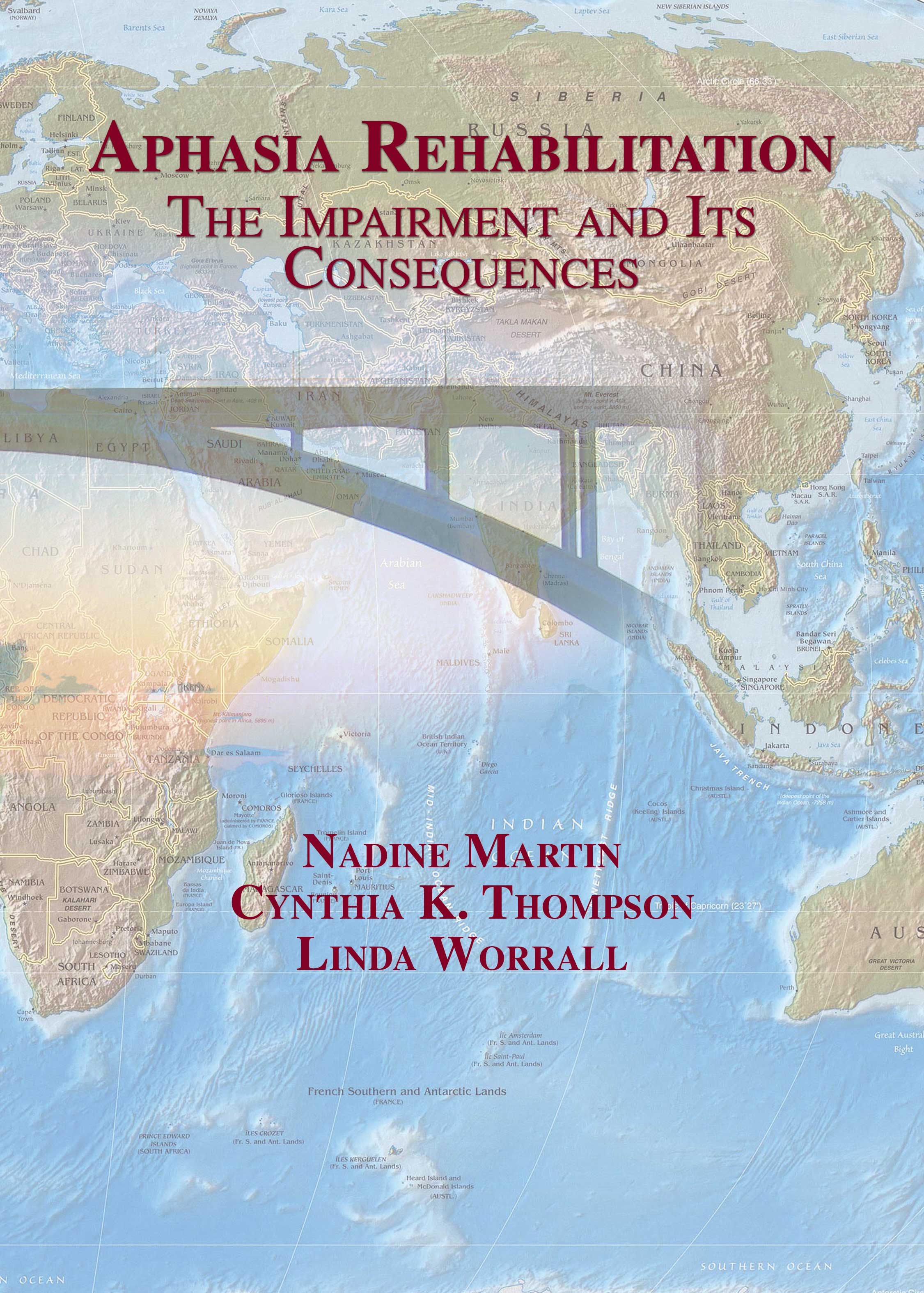
Aphasia Rehabilitation: The Impairment and Its Consequences
First Edition
Nadine Martin, Cynthia K. Thompson, Linda Worrall
Details: 277 pages, B&W, Softcover, 6" x 9"
ISBN13: 978-1-59756-162-4
© 2008 | Available
For Instructors
Purchase
As a consequence of the disability movement, the thinking generated by the World Health Organization's classification of disability and functioning, and an upturn in concern for the long-term consequences of aphasia, it has become apparent that two distinctive pathways for the treatment of aphasia have emerged over the past decade. The first (and most traditional) involves assessment and management directed toward lessening the effects of the impairment of aphasia, while the second pathway focuses less on specific language than on the psychosocial consequences of aphasia. This unique text specifically contrasts impairment- and consequences-focused treatment with the aim of providing clinicians with a level playing field that permits them to evaluate for themselves the relative contributions that each approach provides, to evaluate their relative strengths and weaknesses, and finally to seek common ground.
An opening chapter sets the scene, while the heart of the book, based on real cases, concerns five meticulously described, yet hypothetical individuals with aphasia. In each of the cases, detailed descriptions and assessment results are provided and clinical management plans, representing each approach, are presented by internationally recognized experts in aphasia rehabilitation.
Reviews
"This book is unique in that it discusses two theoretical approaches to aphasia rehabilitation. To my knowledge there are no other books on the market that present both types of approaches in a collaborative way. I would highly recommend this both for graduate students planning evidence-based treatment in supervised learning environments and experienced clinicians who want to learn about the distinctions and benefits of each treatment approach."
—Kerry Lenius, PhD, CCC-SLP, Florida State University, Doody's Review Service
- SECTION I
- 1. Approaches to Aphasia Treatment
- Cynthia K. Thompson and Linda Worrall
- SECTION II
- 2. A Case of Fluent Aphasia
- Anna Basso and Audrey L. Holland
- 3. Treatment for Fluent Aphasia from a Cognitive-Impairment Perspective
- Anna Basso
- 4. Concentrating on the Consequences: Consequence-Oriented Treatment for MS
- Audrey L. Holland
- 5. Impairment and Life Consequences Approaches for Fluent Aphasia: Convergences and Divergences
- Audrey L. Holland and Anna Basso
- SECTION III
- 6. A Case of Severe Apraxia of Speech and Aphasia
- David Howard and Nina Simmons-Mackie
- 7. Intervention for a Case of Severe Apraxia of Speech and Aphasia: A Functional-Social Perspective
- Nina Simmons-Mackie
- 8. Treatment for a Case of Severe Apraxia of Speech and Aphasia: An Impairment-Based Perspective
- David Howard
- 9. Impairment and Functional-Social Approaches for Severe Apraxia of Speech and Aphasia: Convergences and Divergences
- Nina Simmons-Mackie and David Howard
- SECTION IV
- 10. A Case of Nonfluent Aphasia and Agrammatism
- Cynthia K. Thompson and Linda Worrall
- 11. Impairment-Based Treatment for Agrammatism from a Neurolinguistic Perspective
- Cynthia K. Thompson
- 12. Intervention for Agrammatism from a Consequences Perspective
- Linda Worrall
- 13. Impairment and Life Consequences Approaches for Treatment of Nonfluent Aphasia with Agrammatism: Convergences and Divergences
- Linda Worrall and Cynthia K. Thompson
- SECTION V
- 14. A Case of Anomic Aphasia
- Nadine Martin and Jacqueline Hinckley
- 15. Intervention for Anomic Aphasia from a Functional Perspective
- Jacqueline Hinckley
- 16. Intervention for Anomic Aphasia from a Cognitive Impairment-Based Perspective
- Nadine Martin
- 17. Cognitive and Functional Interventions for Anomic Aphasia: Convergences and Divergences
- Jacqueline Hinckley and Nadine Martin
- SECTION VI
- 18. A Case of Letter-by-Letter Reading
- Linda Garcia
- 19. A Treatment Plan for a Letter-by-Letter Reader: Intervention from an Integrated Perspective
- Linda Garcia
- 20. The State of Impairment- and Consequences-Based Approaches to Treatment for Aphasia: Final Commentary
- Argye Hillis, Linda Worrall, and Cynthia K. Thompson
- Index
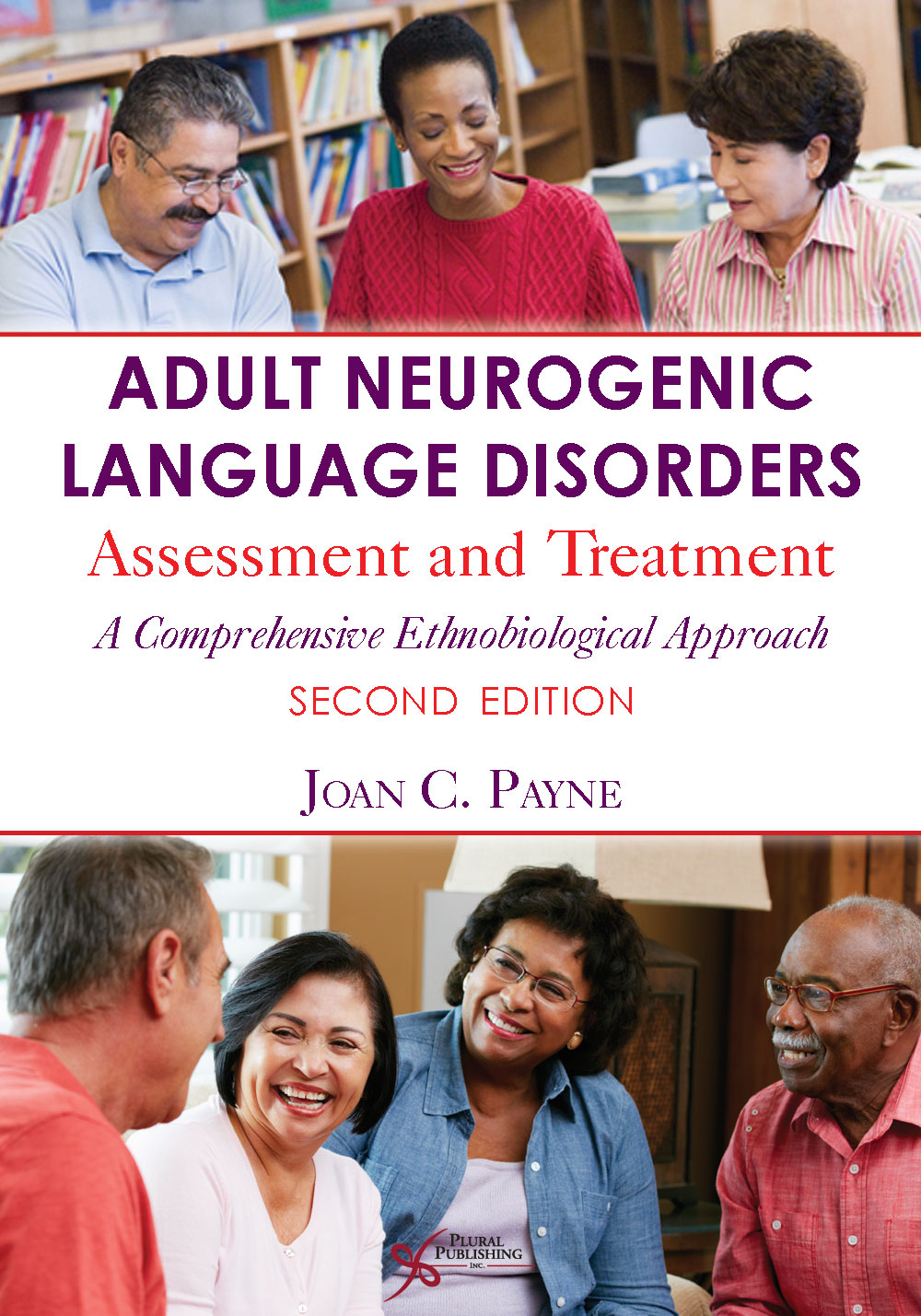
Adult Neurogenic Language Disorders: Assessment and Treatment. A Comprehensive Ethnobiological Approach
Second Edition
Joan C. Payne
Details: 392 pages, B&W, Softcover, 7" x 10"
ISBN13: 978-1-59756-503-5
© 2014 | Available
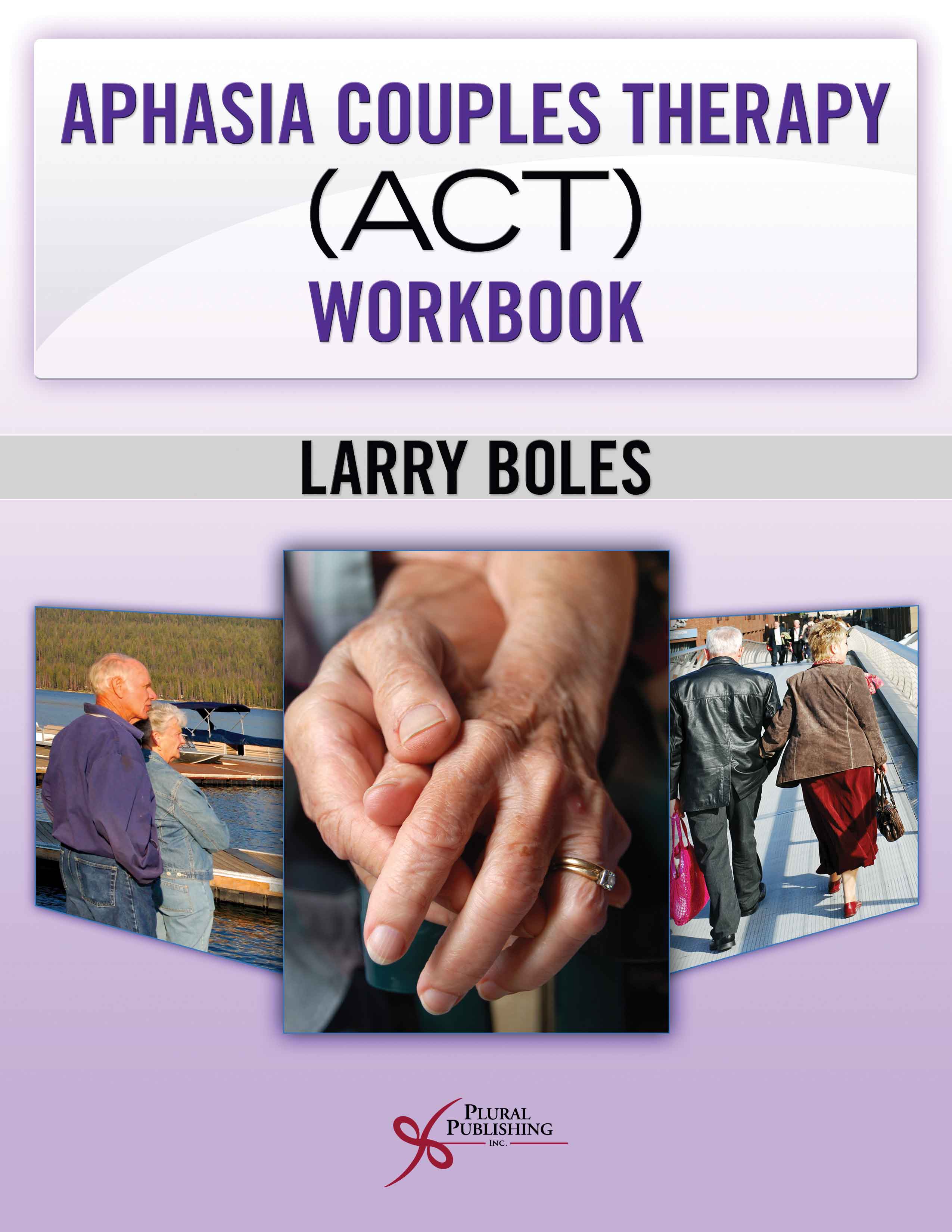
Aphasia Couples Therapy (ACT) Workbook
First Edition
Larry Boles
Details: 132 pages, B&W, Softcover, 8.5" x 11"
ISBN13: 978-1-59756-352-9
© 2010 | Available

Aphasia Couples Therapy Workbook Bundle
First Edition
Larry Boles
Details: 660 pages, B&W, Softcover, 8.5" x 11"
ISBN13: 978-1-59756-396-3
© 2010 | Available
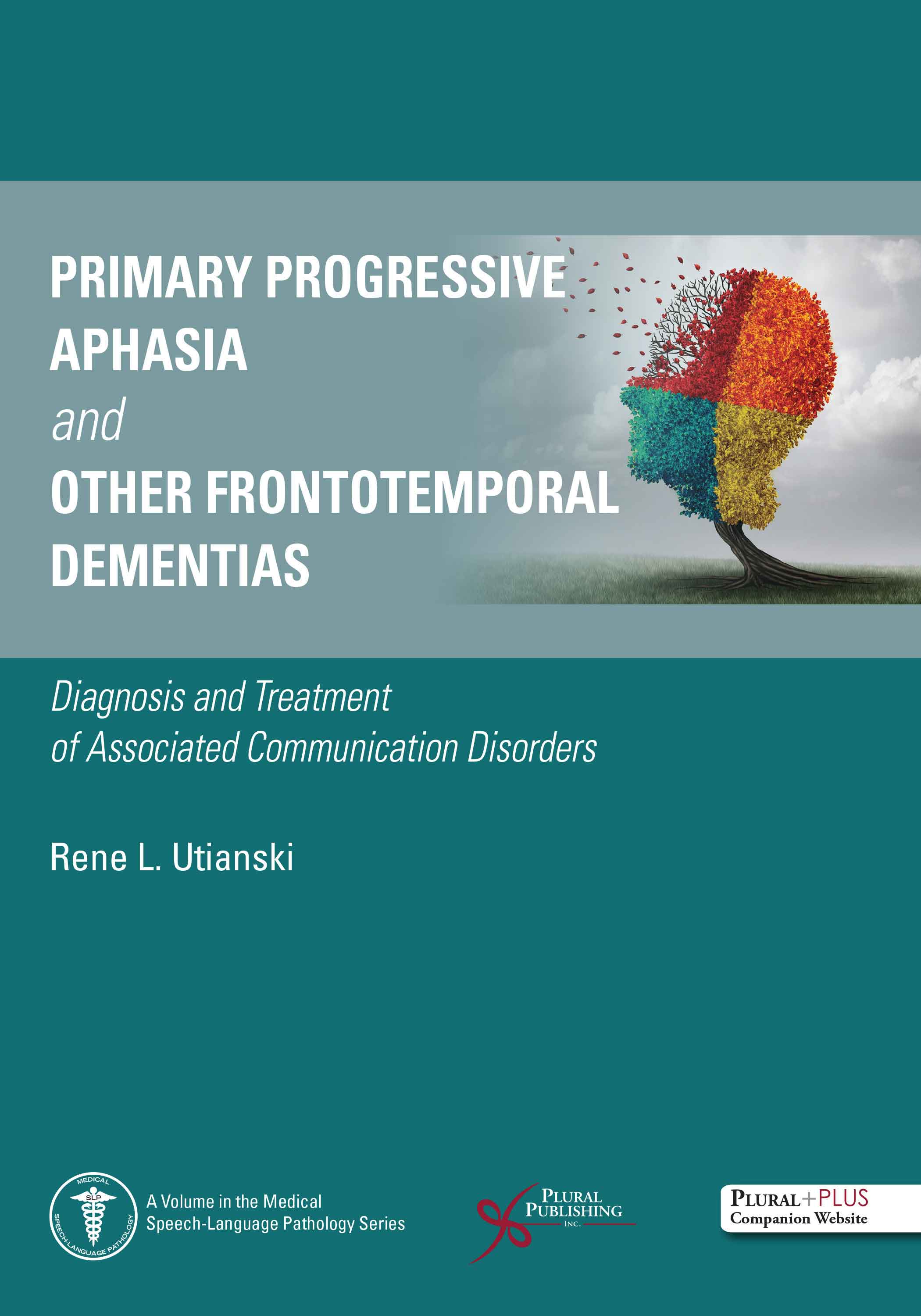
Primary Progressive Aphasia and Other Frontotemporal Dementias: Diagnosis and Treatment of Associated Communication Disorders
First Edition
Rene L. Utianski
Details: 188 pages, B&W, Softcover, 7" x 10"
ISBN13: 978-1-63550-160-5
© 2020 | Available
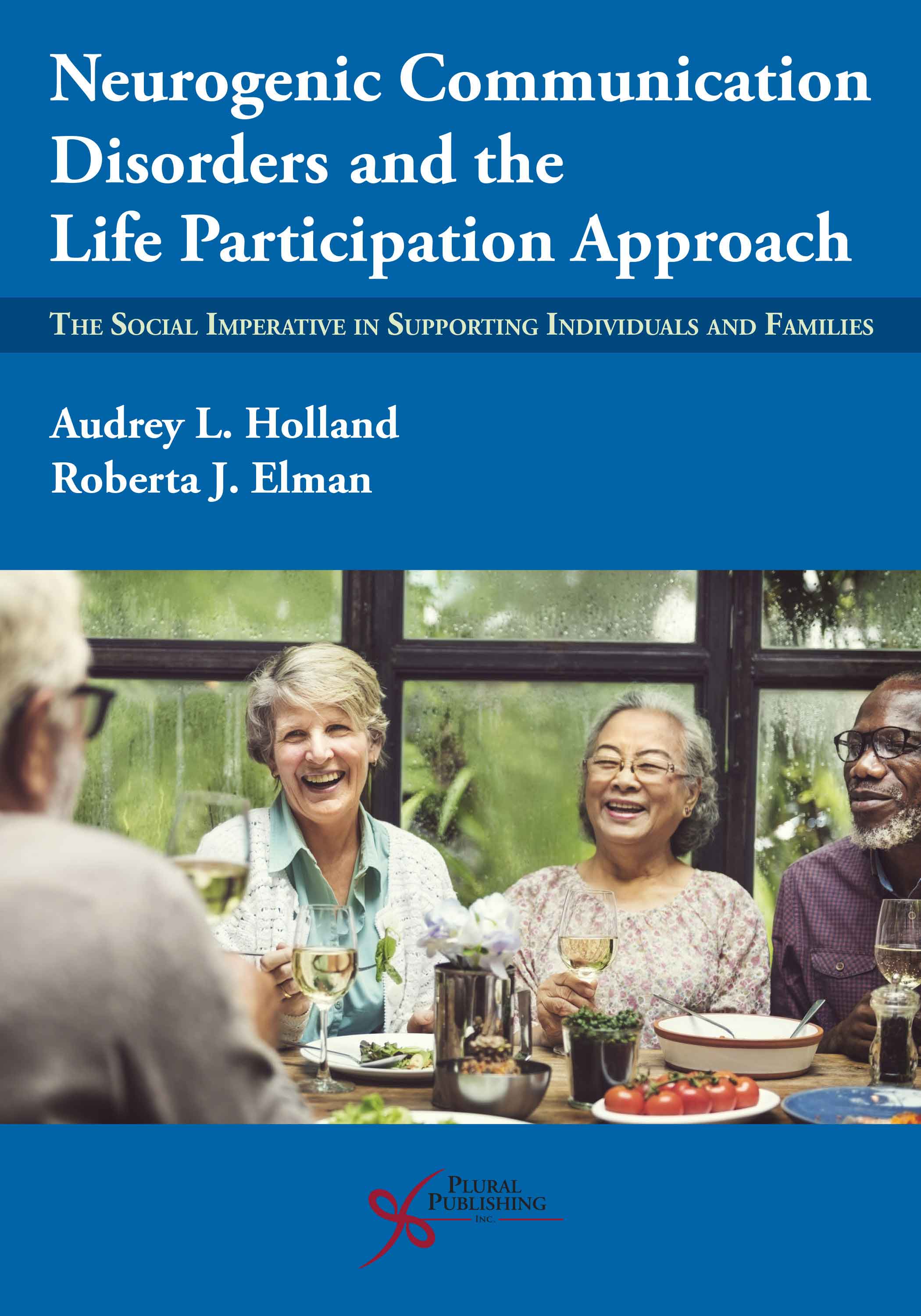
Neurogenic Communication Disorders and the Life Participation Approach: The Social Imperative in Supporting Individuals and Families
First Edition
Audrey L. Holland, Roberta J. Elman
Details: 242 pages, Softcover, B&W, 6" x 9"
ISBN13: 978-1-63550-295-4
© 2021 | Available


